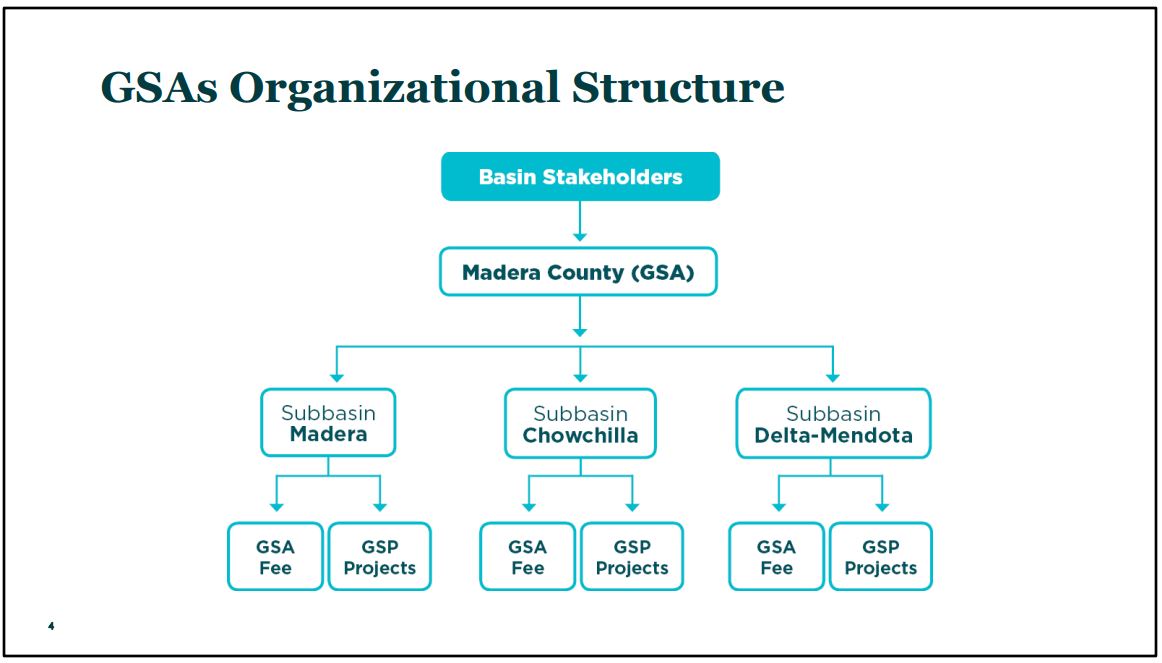Under the Sustainable Groundwater Management Act (SGMA), the Groundwater Sustainability Agencies (GSAs) are charged with the duty of managing groundwater within the GSAs’ respective boundaries for the benefit of all extractors and users of groundwater. The Madera County GSA engaged a financial consultant to conduct multiple rate studies beginning in 2019 to help develop a fair and equitable fee structure that would enable cost recovery for the activities related to complying with SGMA and fees for projects and management actions for the Madera County GSA-managed land.
GSA (Admin) Fee
The fee is designed to help the Madera County GSA recover the administrative costs associated with GSA activities, such as outreach, grant administration, technical support services, legal and professional services, studies (e.g., recharge), annual and five-year reporting, and reserve funding (as allowed under SGMA per Water Code section 10730). The goal of the fee is to ensure that Madera County GSA operations are self-sustaining, and only assessed to the areas of each subbasin managed by the Madera County GSA. This fee required adoption by the Board of Supervisors acting as the Board of Directors for the Madera County GSA.
GSP (Programs and Management Actions) Fee
The second fee covers the programmatic costs for the Madera County GSAs to implement groundwater sustainability plans (GSPs). The GSP-related costs include recharge, purchased water for recharge and agricultural use, water rights applications and permits, a dry well mitigation fund, land repurposing and other activities necessary for implementation of GSPs. The goal of this fee is to help achieve sustainable outcomes for the subbasins over the SGMA implementation period (through 2040).
County GSA Rate Study Final Report 5/6/2022, RES NO. 2022-086 Madera GSP Fee, RES NO. 2022-087 Delta-Mendota GSP Fee
RES NO. 2025-067 Domestic Well Mitigation Program Fee
County GSA (Admin) Fee Documents
Madera County 2019 GSA Groundwater Sustainability Fee Study Draft Report 10/23/2019
Madera County 2020 GSA Groundwater Sustainability Fee Study Update – Final Report 7/13/2020
Ordinance number 689; GSA Ordinance 689 Summary
Resolution No. 2019-172
Resolution No. 2020-107
GSP Fee Resolutions
RES NO. 2022-086 Madera GSP Fee
RES NO. 2022-087 Delta-Mendota GSPRES NO. 2022-086 Madera GSP Fee
RES NO. 2025-067 Domestic Well Mitigation Program Fee

